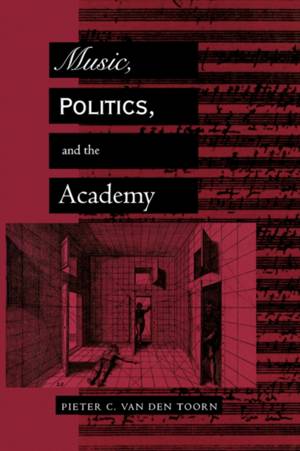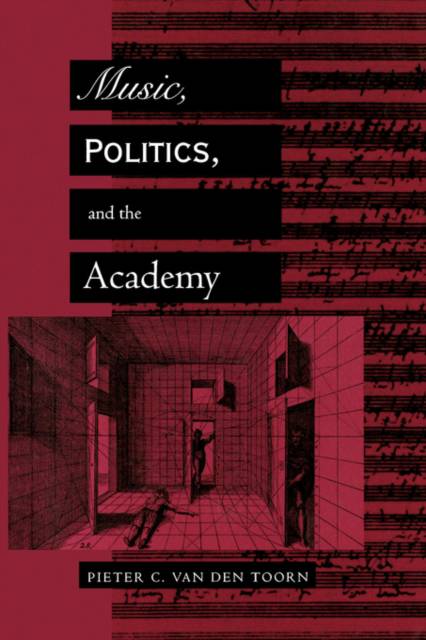
- Afhalen na 1 uur in een winkel met voorraad
- Gratis thuislevering in België vanaf € 30
- Ruim aanbod met 7 miljoen producten
- Afhalen na 1 uur in een winkel met voorraad
- Gratis thuislevering in België vanaf € 30
- Ruim aanbod met 7 miljoen producten
Zoeken
Omschrijving
Advocates of "new musicology" claim that technical methods of music analysis are conservative, elitist, positivist, and emotionally arid. Pieter C. van den Toorn challenges those claims, asking why cultural, sociopolitical, or gender-studies approaches to music should be deemed more democratic or expressive of music's content or impact. Why should music analysis be thought incapable of serving larger aesthetic ends?
Van den Toorn confronts Susan McClary, Leo Treitler, and Joseph Kerman in particular, arguing that hands-on music analysis can penetrate the complexity of music and speak to our experience of it. He criticizes new musicologists for retreating from issues of musical immediacy by focusing on cultural issues. In later chapters van den Toorn defends Schenkerian methods and demonstrates the usefulness of technical analysis in the appreciation of Beethoven, Debussy, Schoenberg, and Stravinsky.
Van den Toorn confronts Susan McClary, Leo Treitler, and Joseph Kerman in particular, arguing that hands-on music analysis can penetrate the complexity of music and speak to our experience of it. He criticizes new musicologists for retreating from issues of musical immediacy by focusing on cultural issues. In later chapters van den Toorn defends Schenkerian methods and demonstrates the usefulness of technical analysis in the appreciation of Beethoven, Debussy, Schoenberg, and Stravinsky.
Specificaties
Betrokkenen
- Auteur(s):
- Uitgeverij:
Inhoud
- Aantal bladzijden:
- 252
- Taal:
- Engels
Eigenschappen
- Productcode (EAN):
- 9780520201163
- Verschijningsdatum:
- 1/01/1996
- Uitvoering:
- Paperback
- Formaat:
- Trade paperback (VS)
- Afmetingen:
- 153 mm x 229 mm
- Gewicht:
- 390 g

Alleen bij Standaard Boekhandel
+ 115 punten op je klantenkaart van Standaard Boekhandel
Beoordelingen
We publiceren alleen reviews die voldoen aan de voorwaarden voor reviews. Bekijk onze voorwaarden voor reviews.








